Ecosystems
-
 Agriculture
AgricultureCan scientists make fruits and veggies resilient to climate change?
Combining traditional plant breeding with new genomics tools is allowing scientists to grow plants that are better adapted to a warming climate.
By Amanda Heidt -
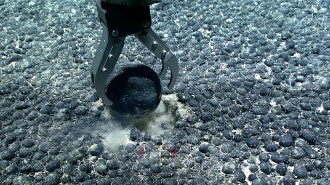 Oceans
OceansIn a seafloor surprise, metal-rich chunks may generate deep-sea oxygen
Instead of sinking from the surface, some deep-sea oxygen may be created by battery-like nodules that split water into hydrogen and oxygen.
By Sid Perkins -
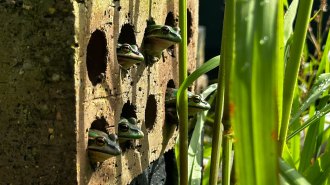 Animals
AnimalsTiny saunas help frogs fight off chytrid fungus
Balmy shelters could bolster resistance to the deadly fungus in amphibian populations, but experts caution they won’t work for all susceptible species.
By Skyler Ware -
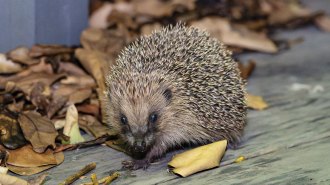 Animals
Animals‘Cull of the Wild’ questions sacrificing wildlife in the name of conservation
In his new book, ecologist Hugh Warwick seeks middle ground in the waging battle that is wildlife management.
-
 Environment
Environment‘The High Seas’ tells of the many ways humans are laying claim to the ocean
The book explains how the race for ocean resources from fish to ores to new medicines — the Blue Acceleration — is playing out.
-
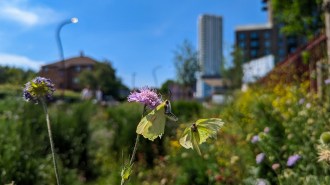 Animals
AnimalsWant to see butterflies in your backyard? Try doing less yardwork
Growing out patches of grass can lure adult butterflies and moths with nectar and offer lawn mower–free havens for toddler caterpillars.
By Susan Milius -
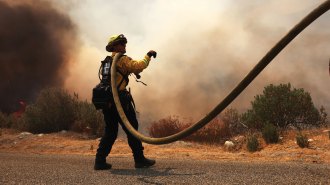 Environment
EnvironmentA new approach to fighting wildfires combines local knowledge and AI
Land managers in the western United States are using potential operational delineations, or PODS, to prepare for — and take advantage of — wildfires.
By Nikk Ogasa -
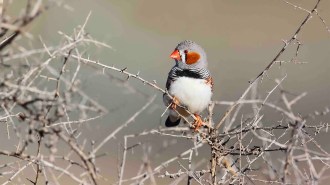 Ecosystems
EcosystemsNoise pollution can harm birds even before they hatch
Exposing zebra finch eggs and hatchlings to traffic sounds had lifelong health impacts, raising concerns about increased anthropogenic noise.
-
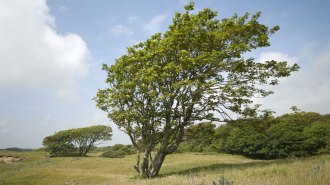 Plants
PlantsPlant ‘time bombs’ highlight how sneaky invasive species can be
Sycamore maples and some other plant invaders lurked for centuries before starting to choke out native ecosystems and species.
By Susan Milius -
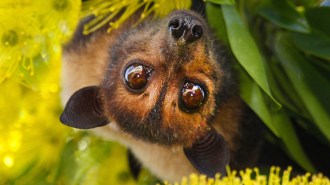 Ecosystems
EcosystemsA new road map shows how to prevent pandemics
Past viral spillover events underscore the importance of protecting wildlife habitats.
-
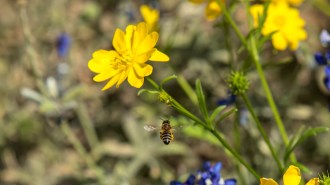 Ecosystems
EcosystemsFlowers may be big antennas for bees’ electrical signals
The finding suggests a way for plants to share information about nearby pollinators and communicate when to trigger nectar production.
-
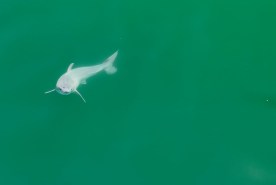 Animals
AnimalsDoes this drone image show a newborn white shark? Experts aren’t sure
If a claim of the first-ever sighting of a newborn white shark holds, it could help solve a mystery of where adult white sharks give birth.